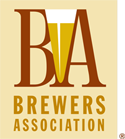What Most Bartenders Don’t Know About Their Own Tap Systems
Most bartenders and bar owners have a fair working knowledge of how their tap system functions. They’re able to recognize operational defects and malfunctions involving factors like proper refrigeration, carbonation, and beer flow/pour rate.
However, what most bartenders don’t know is the impact poor sanitation has on the performance of a draught beer system.
“Closing the Cut” on Your Beer Lines
Beer is actually very dense with nutrients like various sugars and proteins, and there are dozens of species of airborne bacteria and mold that are constantly on the hunt for nutrient sources. When airborne microorganisms contact beer faucets (especially dirty ones) they immediately begin to feed on nutrient residues left on and inside the faucet, then begin to reproduce and colonize toward the nutrient source: the draught beer line. Proper faucet maintenance is a key factor in maintaining proper sanitation of a draught beer system. Because the faucet is essentially the “open cut” on a beer line that leaves the entire system susceptible to infection, proper faucet cleaning has a significant impact on the amount of bacteria and mold that enter draught beer lines.
While most of these microbes are harmless (i.e. non-pathogenic), they ALL consume the sugars and proteins contained in beer, thus affecting the body and overall malt character of a beer. Byproducts of their digestive processes are then released into the beer. These byproducts include acids that will sour a beer and decrease head retention, and mercaptans which are sulfur-based compounds that make a beer taste skunky. Many of these bacteria and mold will also release gases as a byproduct of their own fermentation, which can affect the perceived carbonation of a beer.
Proper attention to sanitary details is by far the most overlooked step in draught beer maintenance by bar staff. Simple sanitary methods, such as regular hand washing and continual cleaning around faucets and beer towers, greatly reduces the number of airborne microorganisms present. A 50% solution of rubbing alcohol (isopropyl alcohol) is a cheap and effective antibacterial solution for cleaning food grade surfaces without affecting the flavor of the food (or beer) being served. And regular cleaning of beer faucets, towers, and drip trays ensures that the levels of bacteria and mold in a tap system are kept to a minimum.
Have a question? Contact us today >




Leave a Reply
Want to join the discussion?Feel free to contribute!